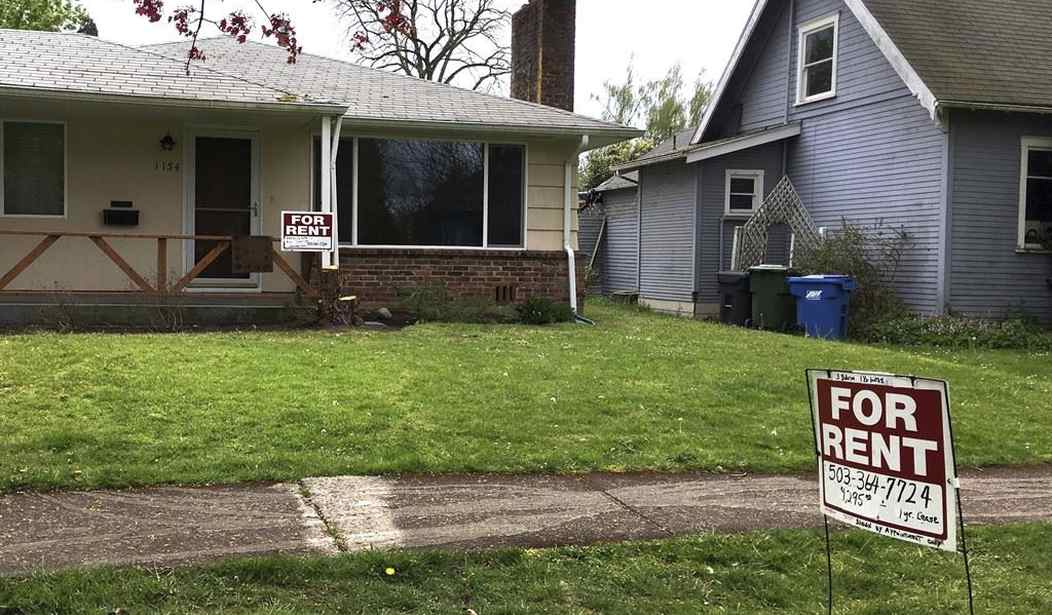Last week, U.S. Reps. Becca Balint (D-VT) and Jesús “Chuy” García (D-IL) introduced legislation to curtail landlords’ use of algorithms in the housing industry. Sens. Peter Welch (D-VT) and Ron Wyden (D-OR) introduced a version of this bill in the U.S. Senate earlier this year, and President Biden has made seeing this initiative through a top administrative priority.
I, along with all my former colleagues in the Department of Housing and Urban Development that I have spoken to about the matter, find this far-left legislative and administrative effort wholly misguided. We believe wholeheartedly that the private sector is not responsible for rising rental rates; the government is.
The computer price optimization software politicians are targeting analyzes vast amounts of data — including production costs, market conditions, and consumer behavior — before calculating pricing suggestions. This isn't price-setting; it is the free enterprise system at work. And their systems operate on a voluntary basis. Property managers who purchase usage rights to their software do not need to follow their pricing suggestions.
Anyone who has taken an introductory economics class understands that supply and demand dictate prices. If someone sets the price of a product above market value, it will not sell or rent, even if a computer program suggests the amount in question. That is why properties remain unrented in America today, even in this highly competitive retail marketplace.
RELATED: Biden Refuses to Own Up to Housing Inflation
If algorithms are not the cause of rising rent bills, then what is to blame?
In 1991, then-Secretary of Housing and Urban Development Jack Kemp released a groundbreaking report identifying the root cause of high housing and rental costs in America. Unlike most government reports, which typically ask for more funding and resources, Secretary Kemp's report remarkably asked for less government.
Secretary Kemp recognized that many housing and rental costs were directly attributed to dozens of government rules and regulations and that changing or eliminating those rules would lower costs and open the idea of home ownership and rental opportunities to the millions of Americans priced out of both markets.
More than a quarter of a century has passed since Secretary Kemp issued this report, and home affordability has again become increasingly out of reach.
Rather than propose new regulations, politicians and regulators should dust off this report, read it, and implement its sensible, deregulatory solutions.
State and federal mandates continue to impose costs on homeowners that get passed along to the consumer. Everything from property taxes to solar mandates (in states like California) drives up home prices. The more the mandates cost, the higher landlords' rental income must be to cover costs. Zoning laws, rent control, construction costs, land use restrictions, permitting fees, and building codes all similarly increase costs and impact the marketplace.
The United States macroeconomic situation has also negatively impacted the price of rental properties and homeownership.
With inflation spiraling out of control and interest rates on 30-year fixed mortgages nearly double what they were just three years ago, many Americans have found home ownership no longer in the cards and have continued renting. Because the demand for rental properties has not corresponded with an increase in supply, the costs of rental properties have skyrocketed.
The cold, hard truth is simple – rents have skyrocketed due to political mismanagement of the economy. The twin towers of high inflation and high mortgage rates have kept many Americans from realizing their dream of home ownership, forcing them into the rental market where supply remains scarce.
Congress and the administration should address the elephant in the room like Secretary Kemp urged the federal government to do years ago. The vulnerable Americans affected by this issue all stand to benefit.
David J. Byrd served as a Deputy Assistant Secretary in the U.S. Department of Housing and Urban Development’s Office of Policy Development and Research. He was also appointed as the 18th National Director of the U.S. Department of Commerce’s Minority Business Development Agency. Mr. Byrd worked on President Trump’s Transition Team as a “talent scout” for executive appointments and on the HUD Agency Action Team, organizing the blueprint for HUD policy and personnel infrastructure.













Join the conversation as a VIP Member